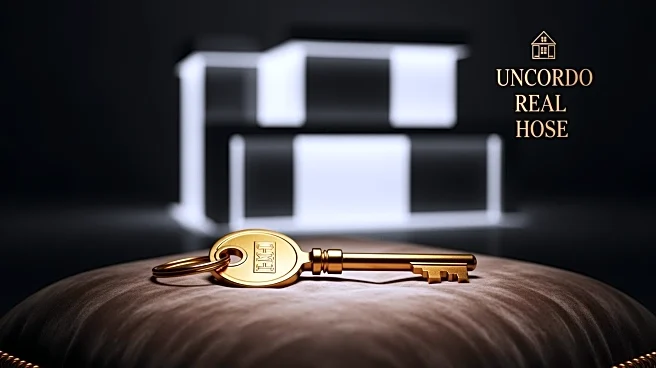What's Happening?
Realtor.com's recent report highlights a significant increase in the cost of luxury homes over the past decade. In 2016, the threshold for a luxury home was $796,622, but by 2025, this figure has risen by more than 60% to $1.3 million. The report indicates
that the top 5% of homes for sale nationwide now start at $2 million, while the top 1% begin at $5.4 million. These values are substantially higher than the national median listing price of $430,000. The report also notes that while a million-dollar home remains an important benchmark, it no longer signifies luxury in many markets. Instead, luxury is defined by exclusivity and relative standing within local markets. The New York metropolitan area, despite not ranking in the top 10 regions for highest starting prices, has the highest number of million-dollar listings, accounting for 33.7% of the region's listings.
Why It's Important?
The dramatic rise in luxury home prices reflects broader economic trends and shifts in real estate markets. This increase impacts potential homebuyers, particularly those seeking high-end properties, as the definition of luxury evolves. The report underscores the growing exclusivity of luxury homes, which may affect market accessibility and affordability. As luxury homes become more expensive, they may contribute to widening economic disparities, influencing urban development and housing policies. The prevalence of million-dollar listings in certain metropolitan areas highlights the concentration of wealth and the demand for high-end living, which can drive local economies but also exacerbate housing inequality.
What's Next?
The continued rise in luxury home prices may prompt changes in real estate strategies and policies. Developers and real estate agents might focus on catering to affluent buyers, potentially leading to more exclusive developments. Policymakers could consider measures to address housing affordability and accessibility, especially in regions with high concentrations of luxury listings. The evolving definition of luxury may also influence consumer expectations and market dynamics, as buyers seek properties that offer exclusivity and status. Monitoring these trends will be crucial for stakeholders in the real estate industry, including investors, developers, and policymakers.
Beyond the Headlines
The shift in luxury home pricing may have cultural implications, as perceptions of wealth and status evolve. The increasing cost of luxury homes could influence societal views on property ownership and investment, potentially affecting lifestyle choices and consumer behavior. Additionally, the concentration of luxury homes in certain areas may impact community dynamics, as affluent neighborhoods become more exclusive. This trend could also affect urban planning and development, as cities adapt to changing demands for high-end living spaces.
















